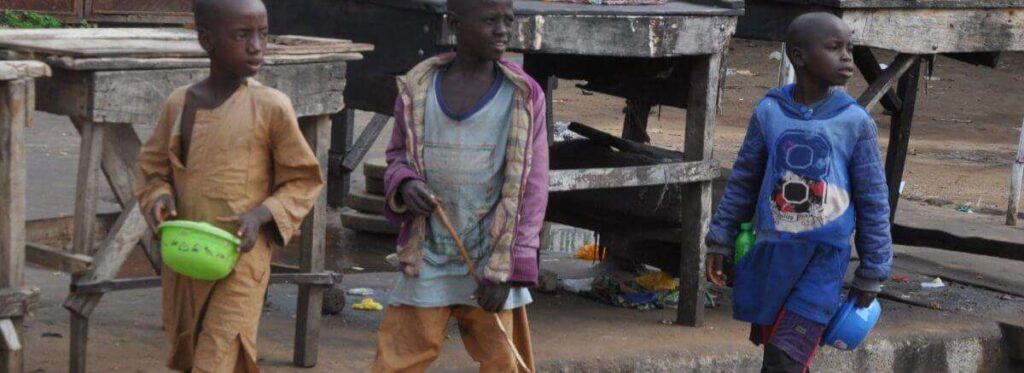Combatting the Driver of Forced Child Begging
The Almajiri system of education in Nigeria is a legacy that has existed for over ten centuries. However, for an education system whose origin dates back to around 11th century B.C., the degeneration of the network has led to the abuse of the rights of a child. A thorough analysis of the underlying principles, curriculum, structure and operations of the system indicates that the current practice of Almajiri system of education in northern Nigeria has maintained its original form for over a thousand years of its existence resulting in severe abuses of child rights.

Eradicating the Drivers of Forced Child Begging in Northern Nigeria (2019)



A cursory evaluation of the current practice of the Almajiri system of education, clearly reveals that while the system has primarily retained its structure, curriculum and modus operandi, it has deviated significantly from its original values and underlying principles. It is saddening to note that the Almajiri system, which contributed immensely to the socio-political, economic, religious and moral development of northern Nigeria in its glorious years has now been reduced to a begging hub wherein children are forced into the streets to beg for alms to support their Koranic teachers and themselves.
CHRICED is currently implementing a research and advocacy project aimed at influencing policies and pressuring government actors to take sustainable steps to address the problem of forced child begging. As such as proceeds from the premise that with the right knowledge, and goal-oriented advocacy, policymakers and governments at all levels, local and international NGOs, civil society organisations (CSOs) and international development partners would be able to take clearly defined steps in terms of committing efforts and resources towards reforming the Almajiri system. For interventions to have the desired effects, the direct beneficiaries (i.e., the Almajiri children and their teachers) and other critical stakeholders in target communities need to be fully engaged and involved all through the intervention process – from the planning to the implementation, up to monitoring and evaluation stages. If this is done, it will go a long way in addressing the issue of lack of awareness and support for intervention programmes by the target beneficiaries.
Against the backdrop of the lack of awareness and perceived ineffectiveness by target beneficiaries of state and non-state interventions on a forced child (Almajiri) begging in Nigeria;
- Government at all levels must ensure the enforcement of existing laws relating to forced child labour and street begging. To this end, the government should ensure that Almajiri school teachers who exploit children in any way must be prosecuted and subject to sentences that are commensurate with the crimes committed.
- The curriculum of Almajiri schools needs to be reviewed, reformed and restructured to reflect present-day realities and future aspirations of the society in which the Almajiri children live. In this regard, the new curriculum should be a blend of Islamic education, western education and life support skills that can help the children cope effectively with the realities of the modern world.
- There is also the need for the proper regulation and documentation of Almajiri schools. To this end, a particular unit should be opened in every state to collate data on the actual number of Almajiri schools and the children enrolled in those schools. Also, mallams willing to establish and operate Almajiri schools must register with the appropriate authorities to ensure proper supervision and periodic inspection.
- Similarly, some measure of parental responsibility has to be enforced. In this regard; local communities, religious institutions, governments at all levels, civil society groups and other critical stakeholders need to find ways of sensitising and mobilising the parents of these Almajiri children to be more responsible. This becomes necessary since no level of intervention by other stakeholders can substitute the role and place of parenting in a child’s upbringing.
